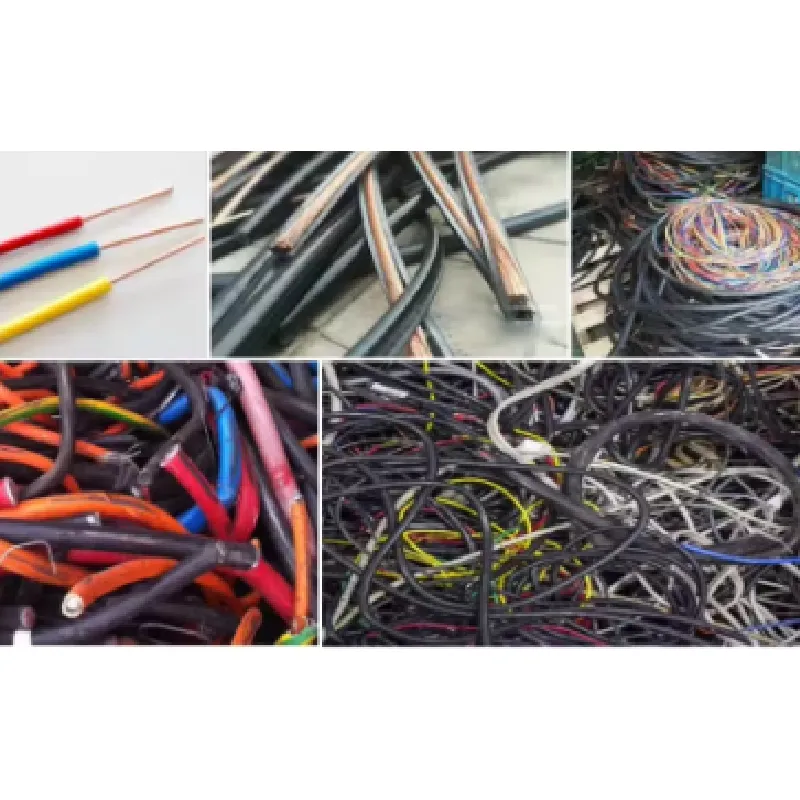Electronic waste, commonly referred to as e-waste, is a rapidly growing concern in today's technology-driven society. As the lifespan of electronic devices shortens, the challenge of disposing of these obsolete products effectively while minimizing environmental impact becomes paramount. Electronic rubbish collection plays a crucial role in managing this crisis, and understanding its intricacies is essential for consumers and businesses alike.

Firstly, the definition of electronic rubbish goes beyond the obvious broken gadgets and extends to any unwanted electronics old mobile phones, outdated computers, broken chargers, and even household appliances like washing machines and refrigerators. The dangers of improperly disposing these items are profound. Electronics contain toxic substances like lead, mercury, and cadmium, which, if not handled correctly, can seep into soil and water supplies, posing severe health risks to humans and wildlife.
For consumers, participating in effective electronic rubbish collection is relatively straightforward yet highly impactful. Start by assessing the electronic waste types you possess. Many cities have implemented local collection programs where residents can drop off their unwanted devices at designated points. Innovations in e-waste management have also led to the rise of door-to-door electronic rubbish collection services. These services are particularly beneficial for large or cumbersome items that are challenging to transport.

Recognizing the role of reputable service providers is vital. Companies specializing in electronic rubbish collection must adhere to regulations and employ sustainable practices to ensure responsible recycling and disposal. Certifications like R2 (Responsible Recycling) or e-Stewards denote adherence to industry standards, ensuring that collected items are processed in a manner that prioritizes both environmental and social responsibility. To select a trustworthy provider, consumers should look for such certifications as well as transparent operating procedures detailing how collected e-waste is managed.
On a product level, businesses manufacturing electronic goods have a significant role to play in mitigating e-waste problems. Moving towards sustainable product design, which includes using recyclable materials and reducing the use of hazardous substances, is an excellent start. Some companies have implemented take-back programs, encouraging customers to return used items in exchange for discounts or other incentives. These programs not only aid in responsible disposal but also foster loyalty and brand trust among environmentally-conscious consumers.
electronic rubbish collection
Importantly,
the expertise in the field of electronic waste management isn't limited to collection alone. It involves collaboration with recycling agencies equipped to dismantle and process e-waste safely. Advanced technologies are now integrated into these processes, enabling efficient recovery of valuable materials such as gold, silver, and rare earth elements, which can be reused in new products. This marks a significant step towards establishing a circular economy and reducing the demand for resource extraction.
Furthermore, educating the public plays a crucial role. Awareness initiatives can significantly enhance participation rates in electronic rubbish collection efforts. Informing consumers and businesses about the impact of e-waste and the benefits of sustainable disposal methods can drive behavioral change. Many organizations now hold workshops and campaigns, often partnering with educational institutions, to cover crucial topics such as the environmental hazards of e-waste and the economic advantages of recycling.
Trustworthiness in electronic rubbish collection is built on transparency. As awareness and technology progress, being open about processing methods and outcomes becomes an ever-important benchmark. Customers rightfully expect electronic rubbish collection services to not only abide by environmental protocols but also contribute to global sustainability goals. As a result, leading companies frequently release impact reports demonstrating their commitment to reducing e-waste and providing end-of-life solutions for electronic products.
Ultimately, electronic rubbish collection is more than an environmental service — it is a critical component of sustainable development in a high-tech world. By engaging with this process knowingly, consumers and corporations alike can help curtail the negative impacts of e-waste while promoting innovation and responsibility in electronics manufacturing and consumption. The journey towards effective electronic waste management calls for a combined effort, underpinned by credible expertise, trustworthy practices, and a genuine commitment to protecting our planet for future generations.



